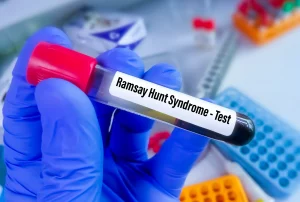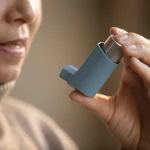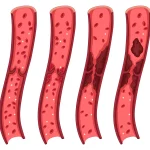Ramsay Hunt Syndrome Symptoms – Ramsay Hunt syndrome is a rare neurological disorder that can cause facial paralysis and deafness, caused by the varicella-zoster virus, the same virus that causes chickenpox. The syndrome gets its name from James Ramsay Hunt, the doctor who first described it in 1907.
There are three types of Ramsay Hunt syndrome: type I, type II, and type III. Type I is the most common, usually affecting adults over 50. Type II is less common and usually affects children under 10. Type III is the least common and can occur at any age.
Ramsay Hunt Syndrome Causes
The varicella-zoster virus is the primary cause of Ramsay Hunt syndrome. This virus is a member of the herpes virus family. It can remain dormant in the body for years after a person recovers from chickenpox. The virus usually reactivates later in life, causing shingles. Sometimes, the virus spreads to the facial nerve, causing Ramsay Hunt syndrome.
Ramsay Hunt syndrome can also happen due to the herpes simplex virus (HSV). This virus is best known for causing cold sores and genital herpes. Occasionally, HSV can infect the facial nerve and cause Ramsay Hunt syndrome.
There are two types of HSV: HSV-1 and HSV-2. HSV-1 is the most common type, and it usually causes cold sores. HSV-2 is less common, and it usually causes genital herpes. Either type of HSV can cause Ramsay Hunt syndrome.
Ramsay Hunt syndrome can also happen due to the Epstein-Barr virus (EBV). This virus is best known for causing mono, or infectious mononucleosis. In rare cases, EBV can infect the facial nerve and cause Ramsay Hunt syndrome.
The varicella-zoster virus, HSV, and EBV are all members of the herpes virus family. These viruses are very contagious, and they can spread through close contact with an infected
Ramsay Hunt Syndrome Symptoms
One of the most common Ramsay Hunt syndrome symptoms is facial paralysis, which can cause the muscles on one side of the face to droop or become weak. The paralysis may be temporary or permanent.
Other symptoms of Ramsay Hunt disease can include:
– Ear pain
– Fever
– Headache
– Loss of hearing
– Muscle weakness
– Numbness
– Rash
– Sensitivity to light
– Stiffness in the neck
– Swelling
These symptoms can vary depending on the type of Ramsay Hunt disease. They can also vary from person to person. In some cases, people with Ramsay Hunt syndrome don’t have any symptoms other than facial paralysis.
Ramsay Syndrome Diagnosis and Treatment
Ramsay Hunt syndrome is diagnosed based on the symptoms. A physical exam and a medical history can help a doctor determine if an individual has Ramsay Hunt syndrome.

In some cases, the doctor may order tests to confirm the diagnosis. These tests can include:
– Blood tests
– Electromyography (EMG)
– Magnetic resonance imaging (MRI)
– Nerve conduction studies
– Skin biopsy
There is no specific Ramsay syndrome treatment. Treatment focuses on managing the symptoms and preventing complications.
A doctor may prescribe antiviral medications to treat Ramsay Hunt syndrome. These medications can help shorten the duration of the illness and reduce the severity of the symptoms.
The doctor may also prescribe corticosteroids to treat Ramsay Hunt syndrome. These medications can help reduce inflammation and pain.
In some cases, physical therapy can help with facial paralysis. Physical therapy can also help prevent permanent muscle damage.
If a person has Ramsay Hunt syndrome, it is essential to rest. An individual should drink plenty of fluids and eat a healthy diet. They should also avoid stress and get plenty of sleep. These steps can help them recover from Ramsay Hunt syndrome and prevent complications.
Ramsay Hunt Recovery Time
Ramsay hunt recovery time can vary from person to person. In most cases, the paralysis improves within 2 to 3 weeks. In some cases, it may take months or years for the paralysis to enhance.
In some cases, Ramsay Hunt syndrome can cause permanent damage to the facial nerve, resulting in permanent facial paralysis.




